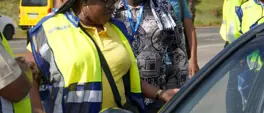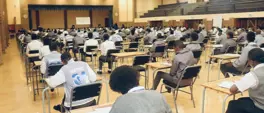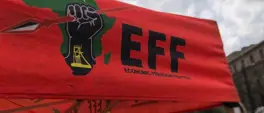BABALWA MATHULELWA: The indignity of mothering in poverty
Babalwa Mathulelwa
29 August 2024 | 10:16Being a good parent becomes an impossible task when basic needs go unmet, when the hunger of your children gnaws at your soul, and when the walls close in with no escape in sight, writes Babalwa Mathulelwa.
In the heart of South Africa, where the land is not ravaged by war but by the relentless grip of poverty, the notion that a mother could choose death over life for her children is a piercing indictment of our society.
It is a pain that should not exist in a country that claims to be free, a feeling so deeply rooted in despair that it exposes the gross failure of our nation to care for its most vulnerable.
The tragedies in the Eastern Cape are a harrowing reminder of this reality.
Over the past two years, many children have died at the hands of their unemployed, single mothers, driven to the brink by poverty and the absence of stable family structures.
In August 2023, Bongeka Buso, 38, of Tholeni Village, Butterworth, was found hanging in her rondavel, with her three children, aged 5 to 14, dead beside her. And in November 2022, Nomboleko Noludwe Simayile killed her four children, aged 2 to 11, in Mhlabubomvu village, Ngcobo, before dying herself in police custody.
The Eastern Cape government's response - to teach parenting skills - is nothing short of an insult. It is an embarrassment that they cannot even pretend to care about the real issues at hand.
These women did not need lessons in parenting; they needed food for their children, a roof over their heads, and a society that valued their lives.
To suggest that these mothers needed only to be taught how to parent is to ignore the crushing weight of poverty that drove them to such despair. It is a cowardly deflection from the truth: that our government has failed to provide the basic social safety nets that would have allowed these women to live with dignity.
The dire state of child malnutrition in South Africa is nothing short of a national crisis, with recent research revealing that malnutrition is a silent killer, underlying a staggering one-third of all child deaths - claiming 10,000 young lives each year.
Even more devastating is that a quarter of children under five suffer from stunting due to chronic malnutrition, condemning them to a lifetime of diminished potential.
This tragedy is compounded by the entrenched and brutal inequality that defines South African society. The World Bank has singled out South Africa's inequality as "exceptional", a damning indictment that highlights how the majority of citizens are trapped in a cycle of poverty that is nearly impossible to escape - a direct legacy of apartheid, perpetuated by the failure of post-apartheid policies to bring about meaningful transformation.
The Patriotic Movement for Economic Justice and Dignity (PMEJD) has additionally laid bare the harsh reality that the government’s support systems are grossly inadequate.
The PMEJD has calculated the monthly cost of a basic nutritious diet for a child at R946.98, exposing the child support grant of R530 as an insultingly insufficient amount. This grant doesn't even cover the Food Poverty Line of R760, leaving millions of children to suffer from the effects of hunger and malnutrition.
Unfortunately, in South Africa, the burden of care in our society falls overwhelmingly on the shoulders of mothers, many of whom struggle alone, without the support of fathers who should share the responsibility.
Being a good parent becomes an impossible task when basic needs go unmet, when the hunger of your children gnaws at your soul, and when the walls close in with no escape in sight.
This is compounded by the staggering unemployment rates for women that expose the brutal reality of a system rigged against them.
Women’s absorption into employment stands at a shamefully low 35.8%, compared to 44.9% for men -an alarming gap that lays bare the deep-rooted, systemic bias poisoning our labour market. This is not a mere statistic; it is a damning indictment of a society that continues to devalue and marginalise women, relegating them to the fringes of economic participation.
The anguish of mothers in post-apartheid South Africa echoes the pain and suffering that countless Black mothers endured during the brutal years of apartheid.
Back then, mothers were forced to make unimaginable sacrifices, watching helplessly as their children were torn from their arms by the apartheid regime, detained, tortured, and even killed for resisting oppression.
The system left these mothers to shoulder the unbearable burden of raising children in an environment where every breath was a fight for survival.
The separation of families, the constant fear of losing a child to the violence of the State, and the crushing weight of systemic poverty are not relics of the past. They persist in different forms today.
As a Hlubi woman raised in the poverty-stricken village of Matatiele, Pholile in the Alfred Nzo Eastern Cape, I witnessed firsthand the crushing weight of this reality.
Born to the late unemployed Mama Marhadebe Nolusapho Mathulelwa, I grew up alongside my four brothers in a family that could scarcely afford food, school fees, or the necessities every child deserves.
At just nine years old, I became a street vendor, determined to further my education from grade 4 and support my family.
Though this experience was gruelling, it shaped me into a multi-talented woman, a pastor, and a loving leader within society. However, this should not be the standard journey for all mothers and children.
In a so-called "free" South Africa, mothers still find themselves trapped in a cycle of poverty and despair, unable to provide for their children, leading some to take drastic measures.
The haunting parallels are clear: just as apartheid weaponised poverty and violence against Black families, today’s economic apartheid does the same.
The enduring legacy of apartheid is a society that still fails to protect its most vulnerable, leaving mothers to carry the scars of a nation that has not yet healed.
These modern-day tragedies are a stark reminder that the liberation struggle is far from over, and until true economic and social justice is achieved, the wounds of the past will continue to fester in the present.
Babalwa Mathulelwa is an Economic Freedom Fighters (EFF) Member of Parliament.
Get the whole picture 💡
Take a look at the topic timeline for all related articles.














